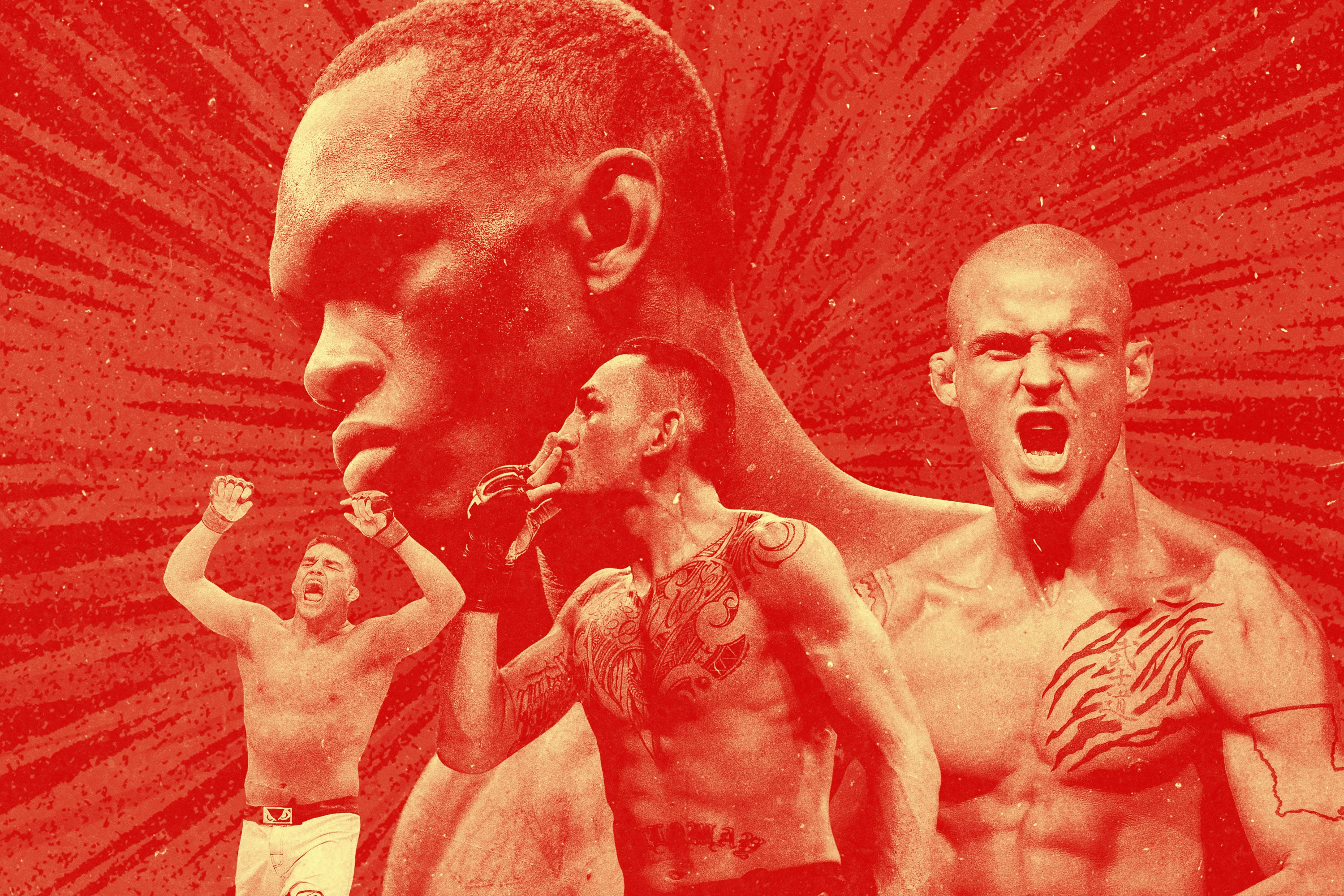
If Dana White was ever reluctant to hand out interim titles, those days are past—now it’s all about keeping his divisions fluid. That’s why there will be two interim title fights in Atlanta on UFC 236 weekend, which could just as well be called UFC 236: The Show Must Go On.
The middleweight champion Robert Whittaker, out until at least late summer after undergoing abdominal surgery to repair a collapsed bowel, can’t carry a pay-per-view from the sideline, so the UFC booked Israel Adesanya against Kelvin Gastelum for the interim title. Khabib Nurmagomedov, the lightweight champion, is serving a nine-month suspension for his fracas with Conor McGregor’s cornermen at UFC 229 last October. In his stead, Dustin Poirier will stand in against Max Holloway for the 155-pound placeholder strap.
These are good, worthy fights, but the natural question becomes: Do they mean what we think they mean? Will whoever emerges as the interim champion in either division then be booked into a unifying title fight with the actual champion, as logic would dictate? Or is somebody about to get Colby’d?
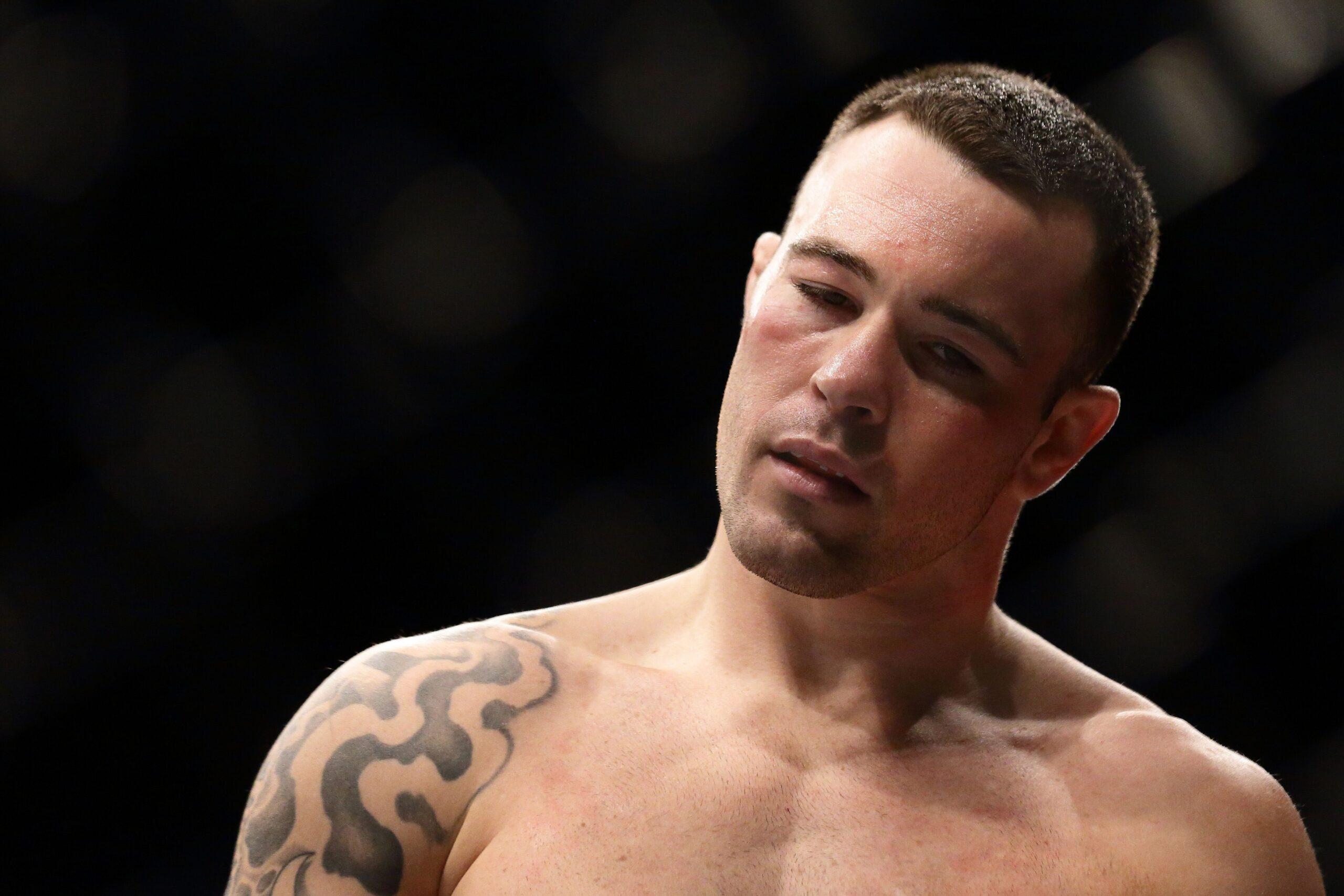
Let me explain. Last June, Colby Covington took on Rafael Dos Anjos for the interim welterweight crown in Chicago. He won a tough decision, and was then lined up for a unifying title shot against then-champion Tyron Woodley. The UFC tried to put the fight together for September, but Covington said he couldn’t be ready in time due to a nasal procedure he had just had performed. Instead of waiting for Covington to be ready, the UFC booked Darren Till against Woodley at UFC 228, and subsequently stripped Covington of his title. Things got even weirder when Woodley fought Kamaru Usman in his next title defense, once again leaving Covington in the lurch.
Time and Dana White wait on no man—not even his interim champions who are presumably standing in for inactive champions. A similar thing happened to Tony Ferguson, who captured the interim lightweight belt against Kevin Lee at UFC 216, only to be stripped of that belt when he got injured just ahead of his unifying title fight with Nurmagomedov. Both Covington and Ferguson—castaway interim champions—can be seen at live events and in media appearances toting their now-worthless “title” belts around, like ghosts carrying around their own decapitated heads.
Does a similar fate await the victors on Saturday night? For now these are things the UFC would rather we not dwell on, but—as Dana White himself is fond of saying when pressed for information prematurely—we’ll see what happens. Especially with Conor McGregor out there right now banging the drum for a rematch with Nurmagomedov.
Here’s a closer look at Saturday’s pay-per-view card, which—as a reminder—is the first to air exclusively on ESPN+.
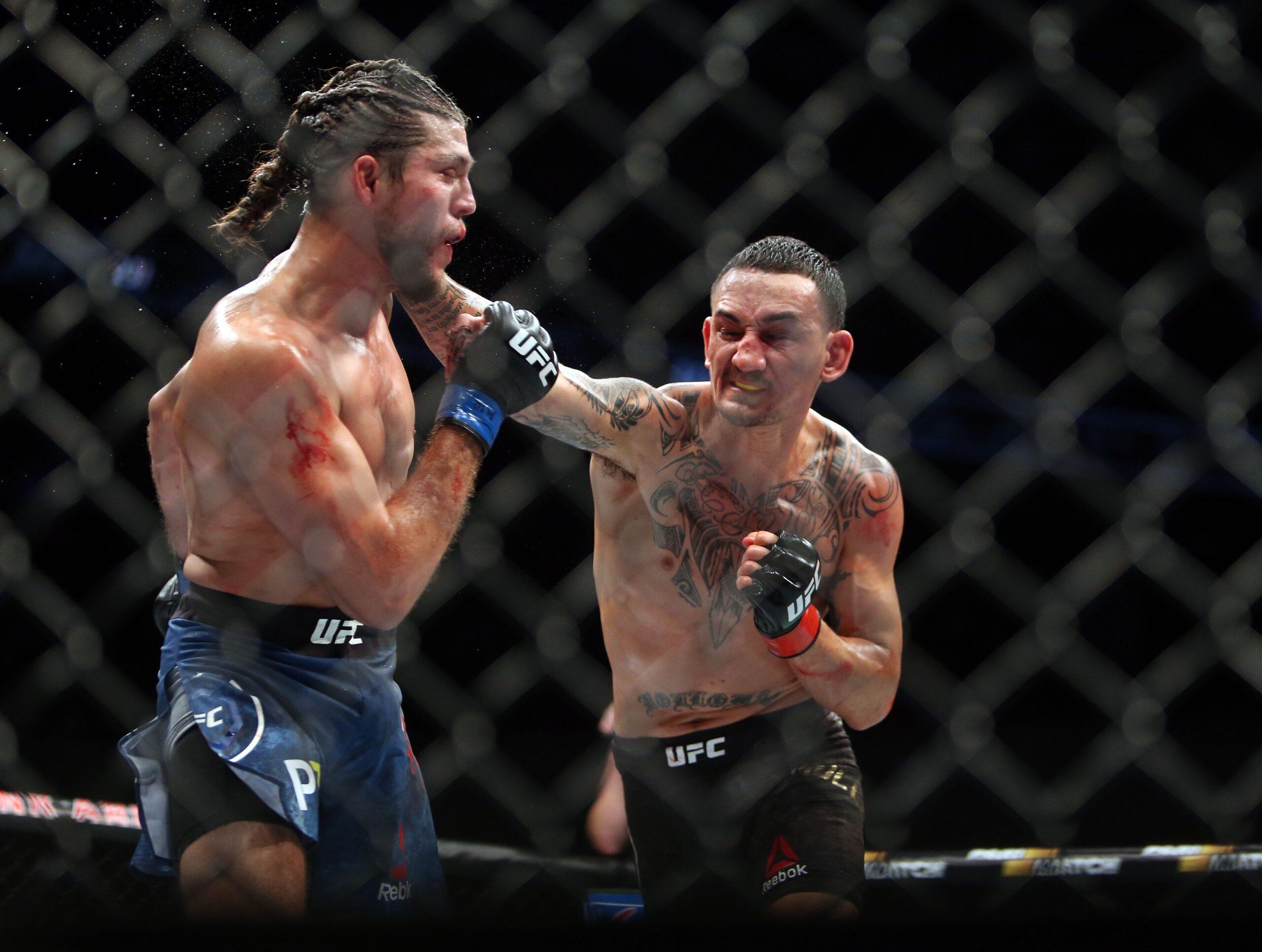
Round 1: Max Holloway Seeks a Second Title
There is a kind of exhilaration to the way the Hawaiian Holloway has handled himself over the past couple of years. After taking Jose Aldo’s featherweight title at UFC 212 in 2017 with a TKO victory, Holloway was supposed to face the flickering, super-deadly Frankie Edgar in his first official title defense at UFC 218 in Detroit. When Edgar was forced to withdraw with an injury, Holloway wasted no time is agreeing to an Aldo rematch, even though he had virtually nothing to gain from it (other than cash). Holloway beat Aldo again, even more impressively than the first time.
The UFC then asked Holloway to step in for the injured Tony Ferguson to face the great Nurmagomedov just a week before the fight at UFC 223. Holloway threw a bag together, hopped a plane from Hawaii to Brooklyn, and sold everyone on the idea that he was just the guy to push Nurmagomedov to the brink at a press conference. We never got to find out. Ultimately, with the steep weight cut and the time constraints, the New York State Athletic Commission shut the whole thing down. Even though he wasn’t allowed to compete, Holloway came off like a hero just for trying to test himself against a beast like Nurmagomedov.
Of course, a short time later he scared the hell out of everyone when he appeared to be concussed—or worse—during a television interview ahead of his next title defense against Brian Ortega. There was concern that he was either punch drunk or suffering the aftermath of a mild stroke, neither of which bade well for his long-term prospects in the sport. Whatever it was, the UFC scotched that fight for the time being, and—after a series of brain tests came back normal—went ahead with the bout later in the year. Even with a cloud of doubt hovering over his status, Holloway completely dominated the undefeated Ortega for 20 solid minutes, forcing the doctors to call it before the start of the fifth round.
All of that sets up this fight with Poirier for the interim lightweight strap, which happens to be a rematch from seven years ago. Back then Holloway was 20 years old and making his UFC debut, and Poirier was 23 and considered a top prospect. Poirier won that battle of green youths via a first-round submission. It feels like a million years ago.
Fast-forward to 2019 and it’s Holloway who has all the eyes on him. He has won 13 straight fights—a nearly unheard of run in the UFC (only Jon Jones and Anderson Silva have gone further)—with a pair of title defenses. He hasn’t gone to a decision since his bout with Ricardo Lamas in 2016. If he wins the lightweight title to go along with his 145-pound belt, he’ll become MMA’s next champ champ, following in the footsteps of Conor McGregor, Daniel Cormier, and Amanda Nunes as the only dual-weight-class champions.
It’s not going to be easy. Poirier has been a monster as of late, having finished former champions Anthony Pettis (submission), Justin Gaethje (TKO), and Eddie Alvarez (TKO) in his past three. Given that there’s a symbolic belt on the line, and presumably a lucrative fight against Nurmagomedov hanging in the balance—and given that each man has been collecting end-of-the-night bonuses regularly over the past couple of years—this has the look of an instant classic.
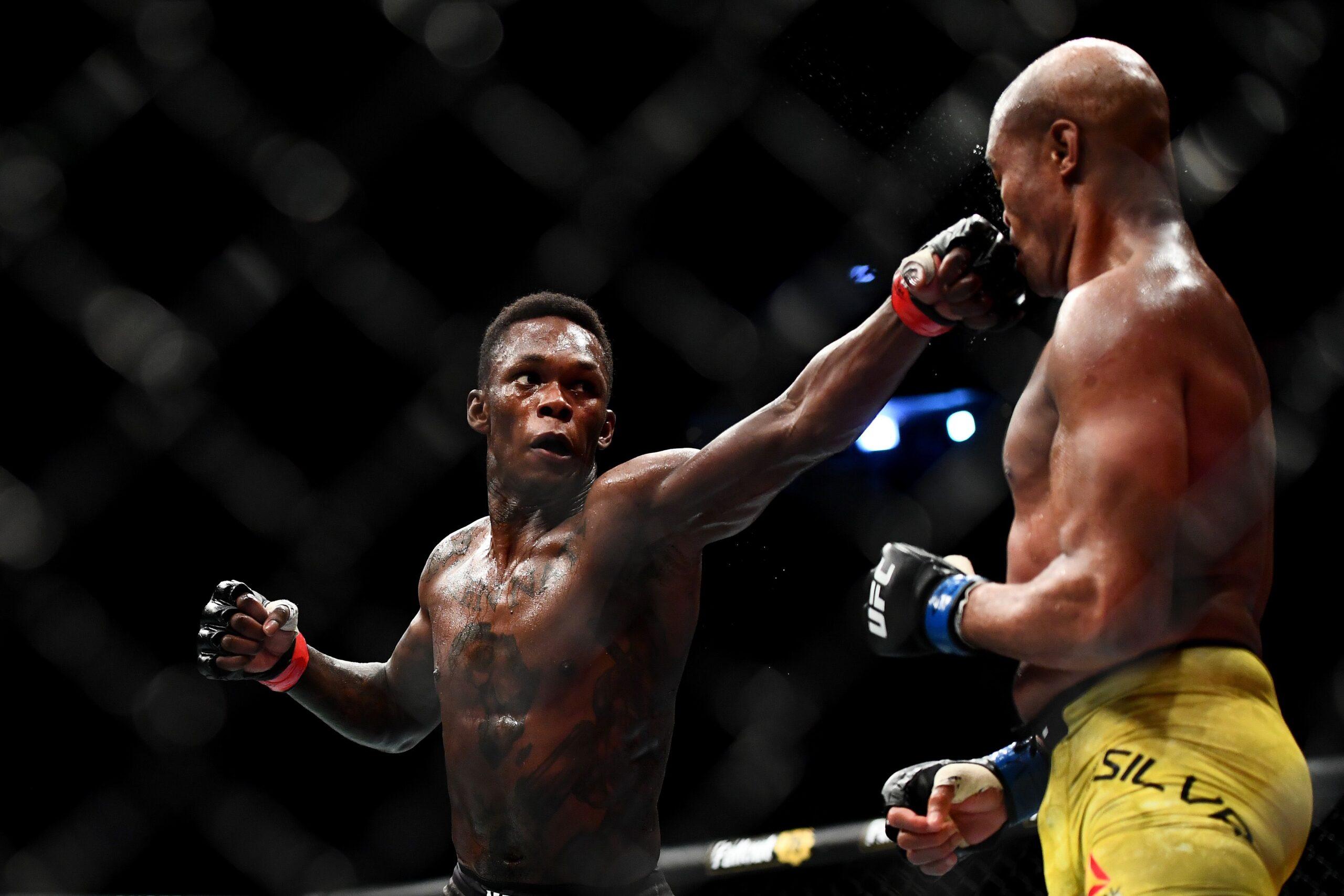
Round 2: Izzy Time
A lot has been made about Israel Adesanya’s rapid ascension from blue-chip prospect to contender, and really, when you break it down, it is pretty mind-boggling. Since he debuted against Rob Wilkinson in February 2018, Nurmagomedov, McGregor, and Jones—the biggest draws in the sport—have fought a combined five times in the UFC. That’s the exact number of times that Adesanya has fought in that period. And this weekend against Kelvin Gastelum will be six, making him like a fight game phoenix.
This is one of those fights that can work over the imagination a little bit. Gastelum, a stunningly efficient middleweight who quietly keeps winning, is a condensed 5-foot-9 southpaw with a reach that’s barely over 70 inches. He is built like a fire hydrant. Adesanya, by comparison, is a wiry 6-foot-4 with a reach of 80 inches. It’s like a noontime shadow taking on a late afternoon shadow. In reality, it’s a fight that could play out any number of ways.
The one thing Gastelum has proved is that he’s an unbudgeable, inexorable force. He keeps coming, wears people down, and sometimes unleashes hell with his hands, as Michael Bisping found out. He essentially retired Tim Kennedy by just big brothering him to the point of mental and physical exhaustion.
Then again, he’s never faced a willowy kickboxer like Adesanya, who can strafe him from great distances, and kick a hole in his forehead at the first false move. Adesanya is compared to Anderson Silva (whom he beat in his last fight) and Jon Jones because there’s a bit of the creative artist always in play, which gives his fights a buzz of anticipation. When will he strike? That’s the kind of thing the fans love—an action fighter who keeps people on the edge of their seats. That’s why the UFC is in love with Adesanya’s star potential, and—even if they won’t say it out loud—everyone is hoping this is the official start of the “Last Stylebender” era.
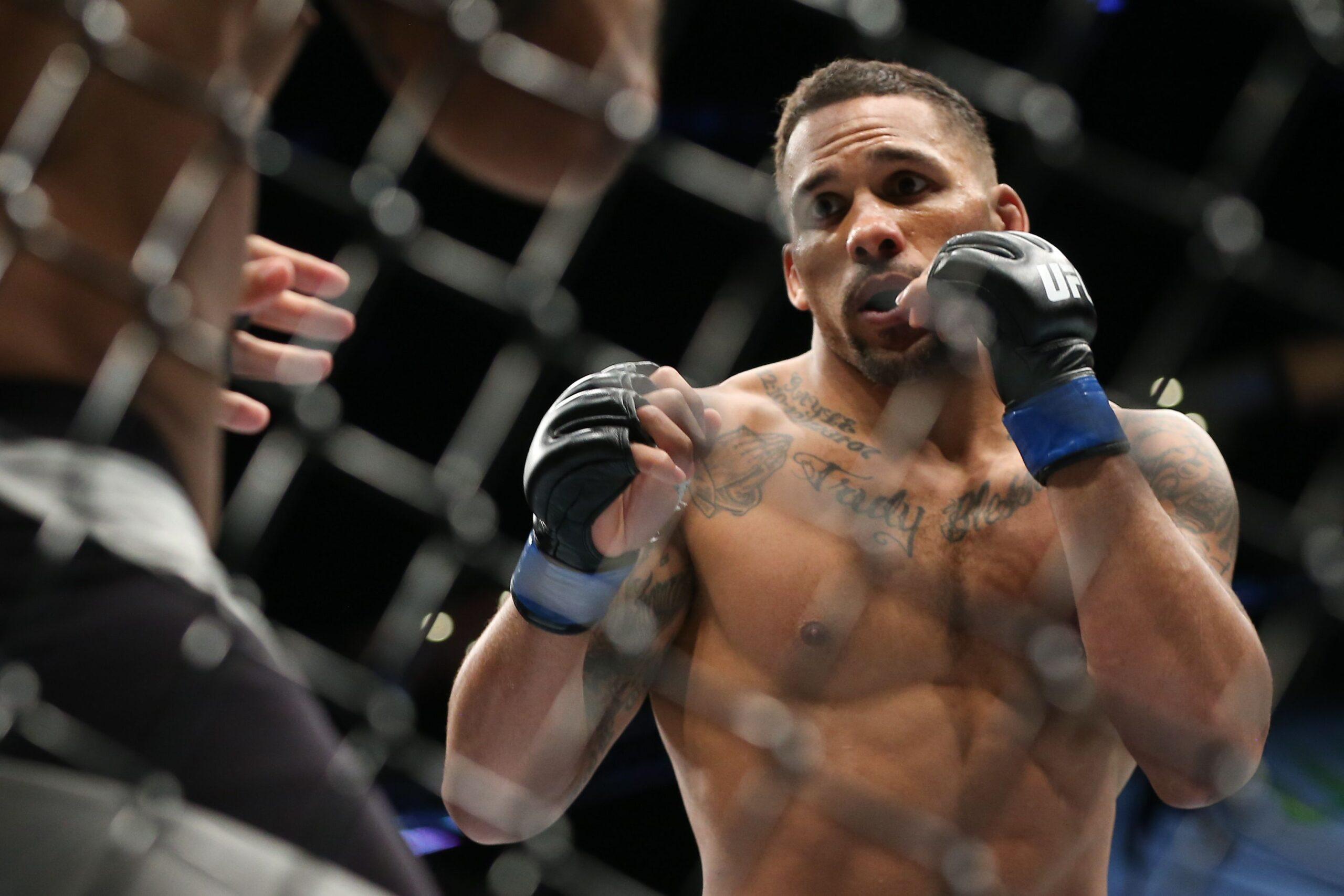
Round 3: Anders vs. Rountree Is a Banger
This light heavyweight fight is the swing bout on the main card for one reason and one reason only: Somebody is going to sleep. Khalil Rountree’s past three victories have all been vicious knockouts, and the last time he fought—against the Brazilian phenom Johnny Walker—he caught an elbow in the first round that spilled him to the canvas.
Eryk Anders, a former linebacker at the University of Alabama, has a similar volatile streak, with his last win coming via a head kick against Tim Williams. To date his biggest victory came against veteran Rafael Natal (KO), but taking out a free-swinging puncher like Rountree would top that. Psychologically, Anders wants to finish the guy in front of him, for good reason: The scorecards haven’t been kind to him. Two of his three losses in the UFC have come via split decision, including his last fight against Elias Theodorou. At this point you have to wonder if he’d rather go out on his proverbial shield than let the judges decide his fate.
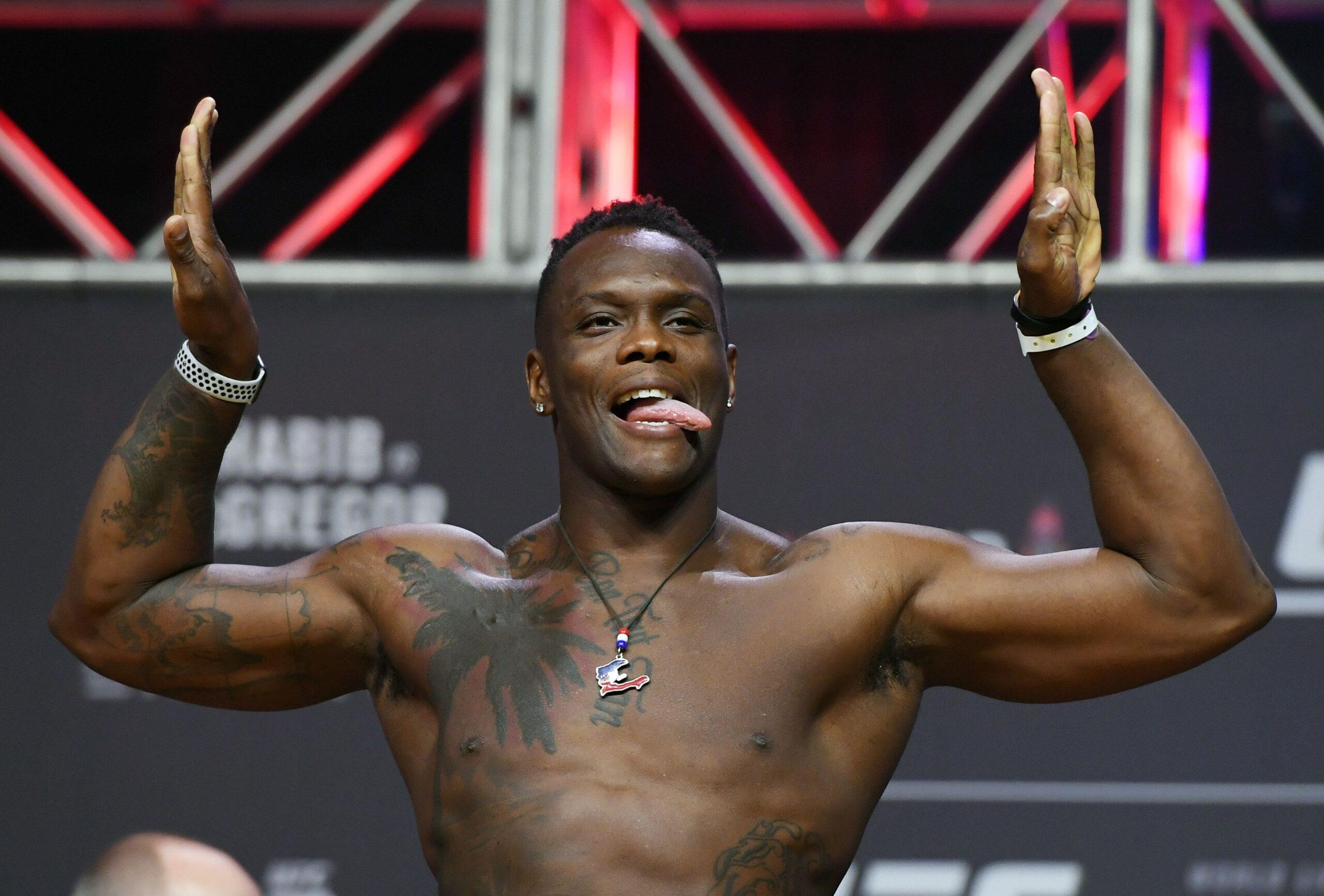
Round 4: OSP vs. Krylov
Traditionally the UFC likes to put an action fight right up front in a PPV, just to lock people into the idea of a thrill ride and give them their money’s worth. This fight between Ovince Saint Preux and the Ukrainian fighter Nikita Krylov is guaranteed to deliver on that front. OSP isn’t exactly a feast-or-famine fighter, but with a 5-5 record over his past 10 fights he isn’t in there simply for his own self-preservation.
Krylov, who at one point used to dress like Al Capone, is positively the most unsung wildman in the UFC. Through 30 professional MMA fights—with 24 falling in his favor—he has never once stood around waiting to hear the judges read a score. All his fights have been finishes. After finishing three straight guys in Fight Nights Global in Russia, he returned to the UFC last September for the promotion’s inaugural visit to Moscow. He got submitted by Jan Blachowicz in what was an entertaining fight, but there’s something about his do-or-die cage demeanor that gives him a cult status regardless of wins and losses.
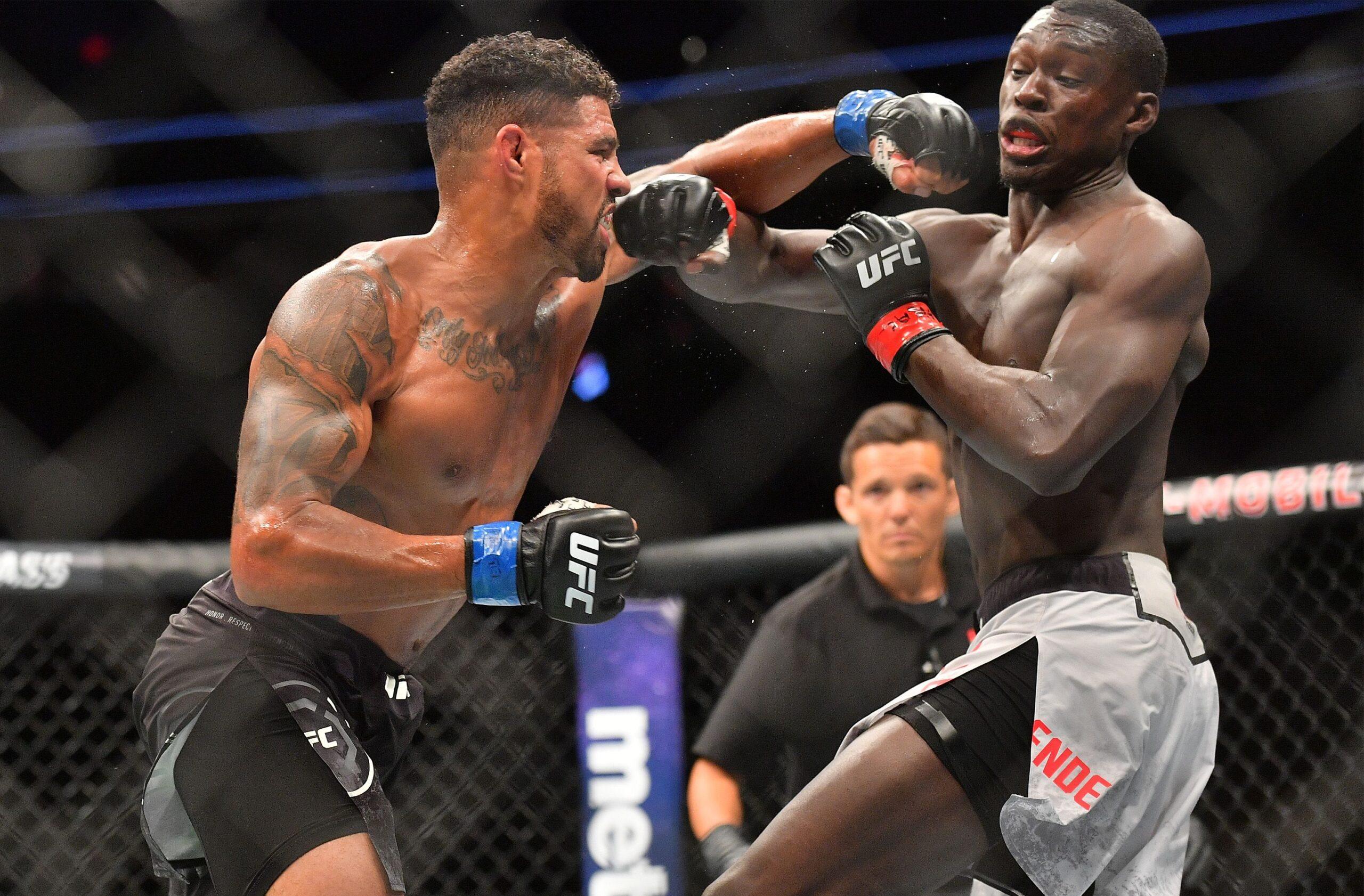
Round 5: Best of the Rest
Max Griffin vs. Zelim Imadaev—After Griffin took out the overhyped Mike Perry last February, in what was a fairly visible fight on Fox, there were some thoughts that he might be one to watch in the welterweight division. So far that hasn’t been the case. He’s now dropped back-to-back decisions against Curtis Millender and Thiago Alves and finds himself fighting for a roster spot. Still, he brings it. And the 24-year-old Russian prospect Imadaev—who is undefeated, with all eight of his wins coming via KO or TKO—has a chance to make a splash against him in his UFC debut.
Curtis Millender vs. Belal Muhammad—Millender is one of those welterweights we could be talking about later on this year as a force in the division. Before he suffered his first loss in the UFC against Elizeu Zaleski dos Santos last March, Millender had cruised through some tough customers in Siyar Bahadurzada, Griffin, and Alves (whom he pasted with a ridiculous knee). Muhammad has been his career doppelgänger. He’d won four in a row before dropping a decision against Geoff Neal. There’s a chance this is a 15-minute battle to the end, but it’ll be hotly contested.
Wilson Reis vs. Alexandre Pantoja—I point this fight out the way one might point out an ivory-billed woodpecker in Arkansas—flyweights are now an endangered species, and we should document/photograph them as best we can before they go extinct. Reis is a frenetic wonder who ran into a buzz saw against the likes of Henry Cejudo and Demetrious Johnson, but against just about everyone else he’s kind of a punishing, old-guard presence. Pantoja is the new blood, having won four of five fights at 125 pounds, and this is a showcase gig for him. The question is: What is he showcasing for, if the flyweight division is on its last legs? Same thing as with the interim title fights at the top: Best not to get too hung up on the “then whats.”